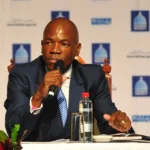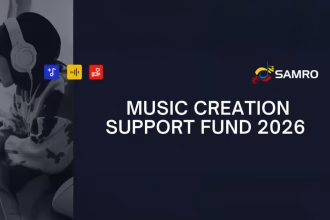Sampra (South African Music Performance Rights Association) CEO, Pfanani Lishivha, is on a bold mission to generate R500 million for artists, tapping into an unconventional source of revenue – the mini-bus taxi industry. Lishivha’s innovative plan aims to ensure that musicians, especially those in the South African music sector, receive fair compensation for the use of their music, a crucial step in addressing the royalties gap that has long affected artists.
The Bold Initiative
Lishivha’s vision is to engage the mini-bus taxi industry, a major component of South Africa’s public transport system, in a scheme to collect royalties for artists. He believes that the widespread playing of music in taxis provides a major opportunity to generate substantial income for the local music industry.
Music plays a significant role in the daily lives of many South Africans, especially in the mini-bus taxi industry where tunes often provide a soundtrack for passengers. This constant exposure of music makes the taxi industry an untapped goldmine for royalties, which is where Lishivha sees a significant opportunity to benefit local artists.
How It Works
Lishivha plans to work with taxi operators and associations to create a system where royalties are collected from taxi owners who play music in their vehicles. This would ensure that artists receive their due compensation for their work being broadcast in taxis, an environment where music is played continuously throughout the day.
The initiative involves negotiating with taxi owners, associations, and operators to integrate Sampra’s collection system into the daily operations of the mini-bus taxi industry. These payments would then be used to fund royalties for artists whose music is played within the industry, generating a sustainable and equitable model for both musicians and the taxi industry.
Potential Impact on South African Artists
If successful, Lishivha’s initiative could lead to a significant boost in income for South African artists who often struggle to receive proper compensation for the use of their music. According to Lishivha, the mini-bus taxi industry could contribute to the R500 million target, ensuring that artists benefit from an ecosystem that has long been a major player in the local music scene but has not been properly compensated for its role in promoting music.
The Bigger Picture
This bold plan also highlights the growing movement towards ensuring that music royalties are better managed and distributed in South Africa. By focusing on alternative revenue streams, Lishivha is addressing one of the key issues facing South African artists – the lack of adequate royalty collection systems.
His initiative is also part of a larger drive to educate South African businesses and the public on the importance of paying for music rights and ensuring artists are fairly compensated for their contributions.
Conclusion
Pfanani Lishivha’s mission to collect R500 million from the mini-bus taxi industry could be a game changer for the South African music industry. By tapping into this innovative source of royalties, Lishivha hopes to create a model that not only benefits artists but also strengthens the local economy by recognising the value of music in everyday life.











